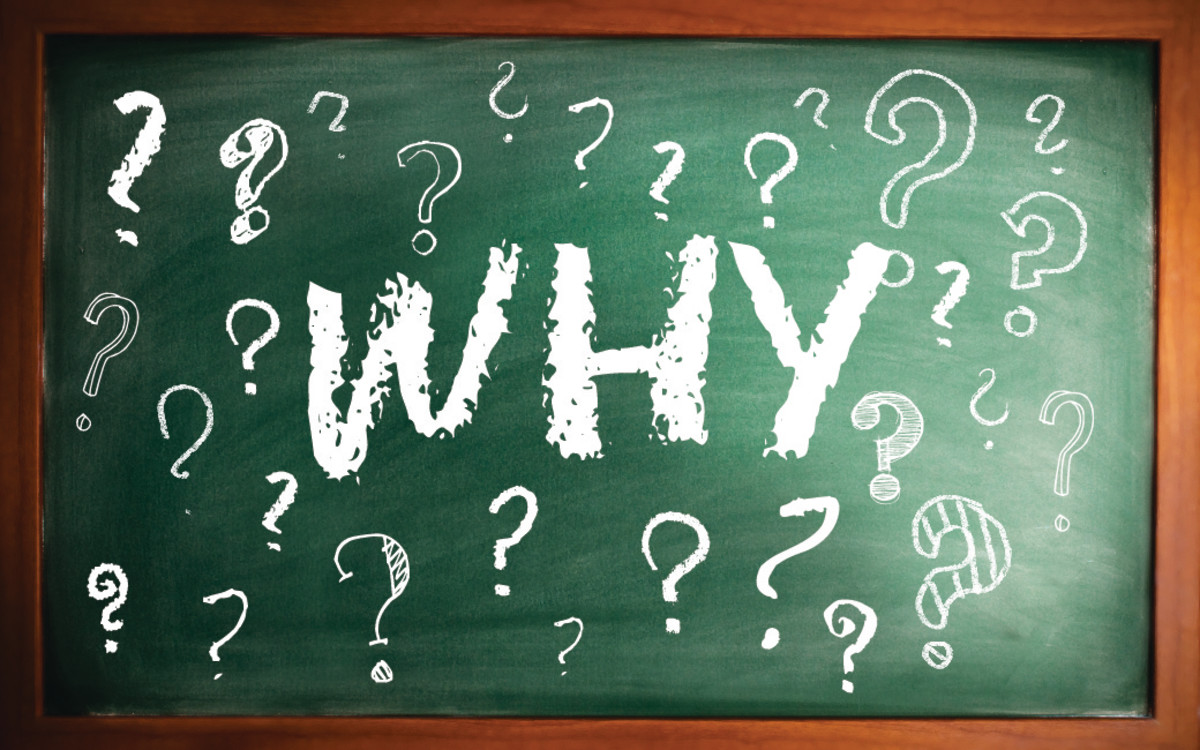How to Write a Topic and Thesis


How to Analyze Two Books in an Essay
- How to Analyze Two Books in an Essay
Analyzing a book in an essay is hard enough, but comparing two books in one paper requires a little extra effort.

Writing Essay Topics
As I mentioned to the left, brainstorming and using the word vomit technique are two ways of coming up with an essay topic. The best advice is to start with something broad and then narrow it down to a topic that is more specific, like I have done in my lists to the left. The more specific you are, the easiest it is to come up with a thesis.
Reference Books and Stress Relief
Essay Topic Examples
Before sitting down to write a topic sentence for an essay or chisel out that solid thesis, coming up with a topic to write about is the very first step, and one of the most difficult. Essay topics are so hard to come by because, unless you are given specific guidelines, there is no end to what you can possibly write about for your paper.
There is no set way to come up with essay topics to write about. One way to try is to use the word vomit technique or brainstorming. When all else fails, examples may help inspire that next essay topic to write about. Here are some of the most popular essay topics for different types of classes:
Anthropology Paper Topics:
Business Paper Topics:
- Linguistics: One example for a topic concerning linguistics is the development of a language and its history.
- Comparison Analysis: This topic can be easy to come up with if you know of two subjects that are alike enough to compare and contrast in an essay.
- Social Constructs: Topics involving social constructs include traditions and ceremonies for different countries.
- Marketing Strategies
- Business During Times of Global Recession: This topic can include consumer trends and emerging markets.
- Personnel Management: This topic can be narrowed down to more specific topics such as worker productivity and employee policies.
English Paper Topics:
- Comparing two books: This topic involves taking two novels, analyzing them, and comparing and contrasting them in an essay. For more information, check out the link to the right.
- Analyzing a book: Analyzing a book can be complicated but, as long as you know what you want to discuss about the book and which book you want to analyze, it should not be a problem.
- Literary Devices: Another topic to discuss in an English essay is a literary device or literary devices used in the novel or other piece of writing your essay is going to be about.
Philosophy Essay Topics:
- Defend/Argue an Idea: Choose a philosophy to argue for or against such as rationalism, Free Will, or any other idea that interests you.
- Biographical: Write about your favorite philosopher.
- Ethics: Welfare reform, abortion, military draft, and drug testing are some examples of topics under ethics that can be thoroughly examined in an essay.
Psychology Essay Topics:
- Biographical: Choose one famous psychologist and write about them.
- Current Issues: Explore one or more current issues in psychology today.
- Experiments: Write about a classic study important in psychology.
These are just three examples of essay topics for each of the five different areas of study that may require essays for students to write about. There is no end to what topics you can choose for your essay or paper. The more you can relate it to your studies in the classroom, the easier it will be for you to find a topic you understand enough to write a solid paper on.

Research Topics in English Literature
- Research Topics in English Literature
Looking for that next research topic on English Literature can be tough. Here are some tips on where to get started.

Thesis Writing
Two common misconceptions people have about writing a thesis for an essay is that it belongs at the very beginning of your first paragraph and that it is only one sentence. Your thesis is not your topic sentence. In fact, it usually comes at the very last portion of your first paragraph, after you have introduced your topic to the reader. Furthermore, it can be more than one sentence, and can even range up to three sentences, although it is best to keep it down to two.
How to Write a Thesis for a Paper
Now that you have come up with an essay topic to write about, it is time to produce a thesis. Your thesis should be introduced within your first paragraph of your essay or paper. Although it is commonly believed that essay writing should start with typing out a topic sentence to get you going, your thesis serves as the focus of your paper and the argument you are making, so it is more essential to get that down and then work around it in order to create a strong thesis and a solid essay to match it.
Since your thesis is such a major part of your paper as a whole, do not be surprised if it takes you a draft or two to get it just right. Believe me, all the effort will be worth it since the best thesis sentences make essays even easier to write. A solid thesis enables you to stay focused and keep your audience's attention, as long as you follow a few guidelines. There are three basic components of a thesis that you should keep in mind when writing one for your essay:
WHAT: The "what" component of your thesis to keep in mind when writing asks you to cover exactly what you are talking about in your essay. Here, you want to avoid generalizations and over-simplifications so that your thesis is concise and specific to what you are talking about.
HOW: The "how" component of your thesis asks you to tell your audience exactly how you are going to support your claim. For a literature essay, for example, you would tell your audience what type of literary devices, themes, or other components of literary analysis you are going to use for support.
WHY: Finally, the third and final component for writing a thesis is the "why" component. Here, you want to avoid having readers ask themselves "so what?" when they get through reading your thesis. Why is this thesis so important? This final component is important to keep in mind when writing your thesis because it can be the difference between an interesting essay and one that is easily forgotten.
Besides keeping these three components in mind when writing your thesis for your essay, it is essential that you address any opposing viewpoints for your argument. This can really help if you are struggling with the daunting "why" component of your thesis. Opposing arguments not only make your thesis a little more interesting, but they can also really help you lay out your argument and make your essay easy to follow as you tear apart the opposition bit by bit.
© 2013 Lisa









